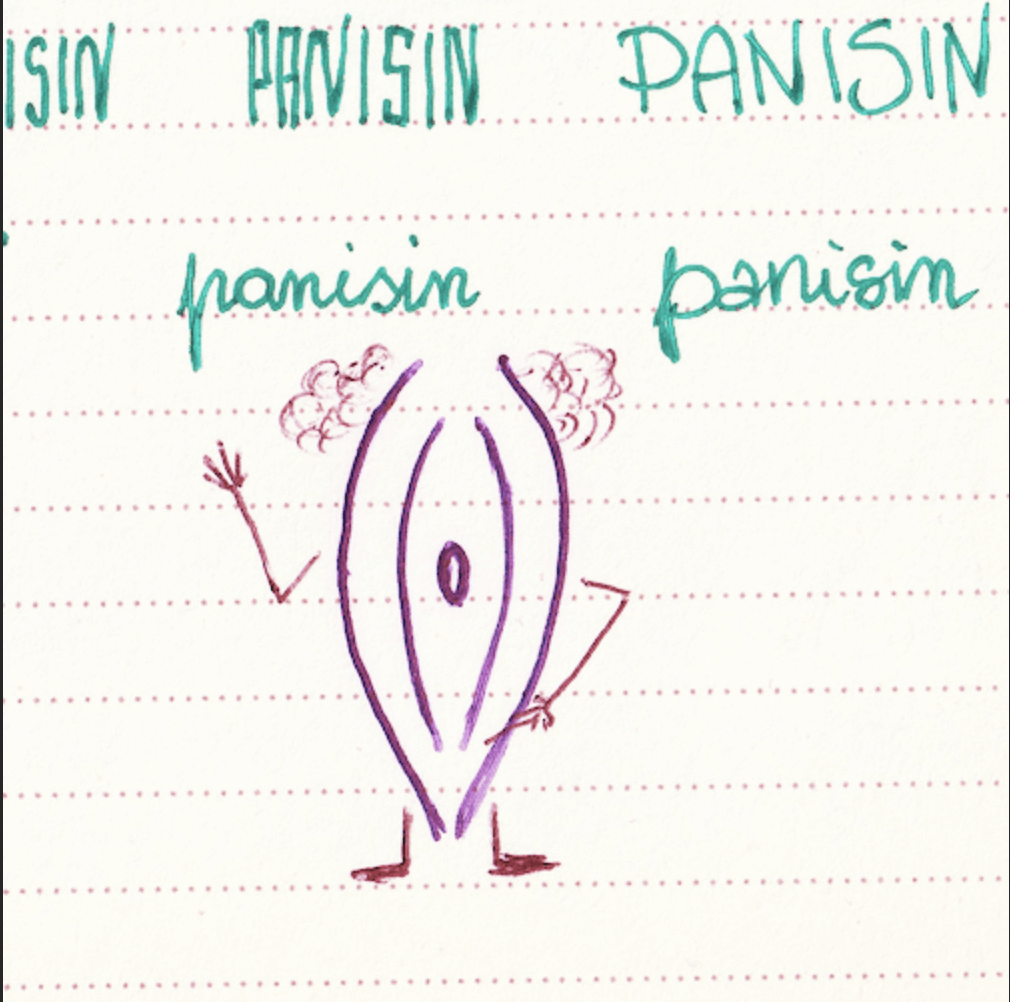Reclaiming female pleasure
Looking through the TERAZ POLIŻ folders with handwritten notes, flyers, newspaper cuttings or notes on theatre tickets and loose sheets of paper, on which the ink had almost faded, brought to mind teenage diaries, but also the free art that was created on the last pages of school notebooks. Marta Jalowska’s notebook brought yet another connotation – with the explosive power of girlish writing and drawing, which escapes the subordinated productivity of the economy of text. The drawing of the pussy as a small character with pictorial arms, legs and curled pubic hair fulfils the political potential of a deliberately embarrassing art that anticipates accusations of infantilism, vulgarity and sexuality, and then uses them as its own weapons. From the practice of capturing conservative narratives comes enjoyment that comes with a sense of agency.

Another practice from the field of feminists reclaiming pleasure is the legitimisation of female jouissance – a multiform pleasure that is no longer seen as a negative version of male pleasure. Thinkers such as Luce Irigaray and Bracha Ettinger have played a key role in challenging the position of psychoanalysis as the main prism through which the female libido is viewed. In the light of psychoanalysis, desire is essentially purely masculine in nature, and female desire is a reflection of an acute lack of phallus. Bringing visibility to the female libido by speaking, writing and performing about our sexuality – including our fantasies, as in “Cunning Stunts” – contributes to seeing jouissance, whether hetero or homosexual, as a full, diverse, relationship-oriented experience, rather than as a supplement to male sexual desire.
Irigaray contributed to the symbolic liberation of the female body from the regime of reproduction. In other words, in the light of her thought, female sex becomes something autotelic, an end in itself, rather than a tool for increasing population and raising the GDP rate. Ettinger, on the other hand, developed the concept of the ‘matrixial gaze’, a perspective that allows one to escape from the shackles of the phallic order, and which opens the way to a different model of subjectivity. In this sense, reclaiming female pleasure means positioning oneself opposite a social order based on a patriarchal system. Reclaiming jouissance is a revolutionary action.

